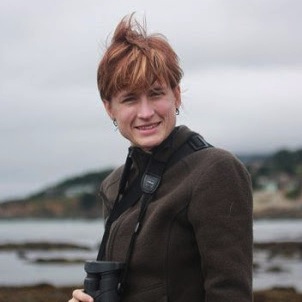Ruth E. Timme, PhD 
Research Microbiologist
U.S. Food and Drug Administration (FDA)
CFSAN - Office of Regulatory Science
Website: FDA Whole Genome Sequencing Program (WGS)
What inspired you to start research in computational biology?
As a new graduate student in 2001 I was awarded an NSF IGERT fellowship in computational phylogenetics. Computational biology was a complete unknown to me at the time, but I took the chance and participated in the broader graduate program to cross-train biologists and computer scientists in the opposite fields. After completing a very challenging undergraduate "intro to computer science" class I was hooked. For me, troubleshooting a computer program I was writing was much more interesting than troubleshooting in the wet lab.
What are 5 important skills needed for your research?
- Persistance
- Creativity
- Positive outlook
- Ability to work collaboratively
- Communication skills
How did you learn the computational and quantitative skills necessary for your work?
As a graduate student I took two undergraduate-level computer science classes (Java and C). This gave me enough foundation to teach myself the rest - I have used Perl extensively over the past 10 years and am now transitioning to Python.
What important questions do you address in your research?
Although I started out as a plant biologist, I now work on the evolution of foodborne pathogens (Salmonella, E. coli, Listeria etc.). The FDA is sequencing the whole genomes of these pathogens as they arise in routine surveillance, environmental sampling, and farm/facility testing. I address the following questions in my research:
- What is the evolutionary history of a particular pathogen?
- Have we seen this new isolate before? If so, where? what is it related to?
- Does this new food isolate match to any clinical isolates collected recently? If so, could it be the contamination source of an outbreak?
- Can we predict antimicrobial resistance from genome data?
- Are there specific virulence genes that might cause a foodborne outbreak to infect more people?
Additional thoughts...
As genome science becomes more prevalent in the regulatory environment –– FDA, CDC, DOD, DOE, etc. –– the government will continue to expand their hiring of PhD computational biologists. Our group will be hiring several people over the next year or two (bioinformatics support, postdocs and full-time positions). If you are interested in a government scientist position feel free to reach out to me anytime with questions. Government positions are posted on https://www.usajobs.gov.
